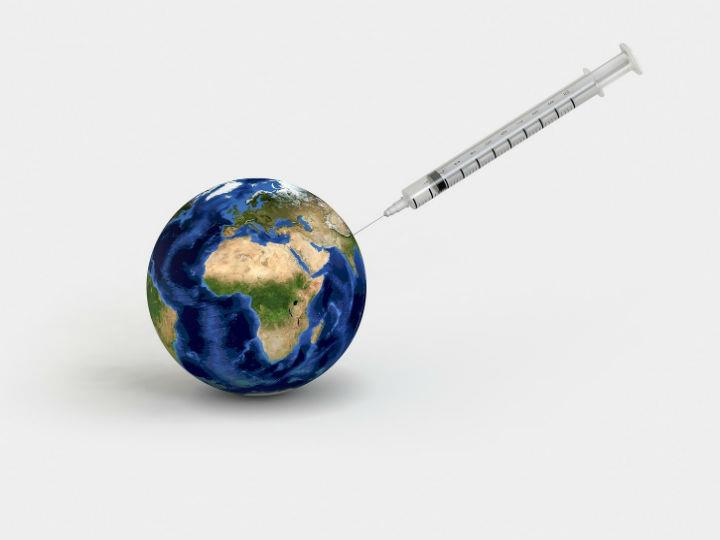by Ravi Kumar S.*
With the COVID-19 pandemic still raging and the prospect of a cold, socially distanced winter looming ahead, all of us are hoping that our jobs, businesses, schools and social lives will soon return to some semblance of normalcy. Universally, there’s the belief that the availability of a vaccine will break the spell and we can finally rid ourselves of our masks. But the last mile from ‘vaccine’ to ‘vaccination’ must be trekked before our world can truly start to become safe, and that journey is fraught with challenges.
Some of these problems, though complex, are well-defined – like connecting the dots between vaccine providers, distributors and consumers, nurturing a cold supply chain framework or even streamlining the broad spectrum of vaccine management from prioritization and administration, all the way to adverse effect monitoring. Then again, not all problems, in this context, are as well-framed.
For example, public hesitancy towards vaccination, brought on by a fear of side-effects, is rampant. In a June 2020 survey, conducted by the World Economic Forum’s COVID Action Platform, only 71.5% of participants reported that they would be very or somewhat likely to take a COVID-19 vaccine. With experts estimating that at least 70% of the population will need to be immune to the virus to stop community spread, building and sustaining vaccine confidence has never been more important.
Then there are people who are not vaccine-hesitant, but who do not have the healthcare coverage needed to pay for or subsidize immunization. This is not hard to imagine when we think back to the early days of the pandemic, and the severe shortage of COVID testing at that time. People – especially from marginalized groups – stood in interminable lines waiting their turn or – worse – had no access to tests at all, while a privileged few accessed testing, sometimes as frequently as every day. Today, many voices decry the wealthier countries reserving vaccines to increase the chances of protecting their own population. Duke Global Health Innovation Center research puts the number of those reserved doses at a whopping 9.8 billion. This is despite every expert pointing to the fact that the nature of the pandemic is such that no one is really safe unless everyone is safe. Even if we refuse as a collective to recognize it, clearly this is the moment to collaborate and prioritize distribution to protect at-risk populations first so that they don’t aggravate the spread and endanger all our lives.
It does seem fair, then, to conclude that solving for the deficit in trust, fairness, discipline, equitable sharing and collaboration should be as much a focus as producing and distributing a viable vaccine.
Large employers, given the influence they wield, can significantly alleviate the situation if not entirely remedy it. In the same survey by the Forum, 61.4% of those polled said they would accept their employer’s recommendation to be vaccinated. This means that businesses can play a pivotal role in encouraging vaccine literacy and engendering vaccination trust in the workplace by putting in place structured programmes for knowledge sharing and guidance.
A big benefit of driving vaccine literacy also lies in creating widespread appreciation for the fact that the vaccine itself is no silver bullet. The early batches of the vaccine, much like the flu vaccines in the US that are about 40 to 60% effective, will decrease one’s risk of exposure but not necessarily eliminate it. While policy-makers are ramping up investments to bring the vaccine to citizens, it is only practical to assume that not everyone will get a shot when the first vaccines become available. To stop the contagion and defang the virus, it will be necessary to vaccinate at least two-thirds of the world. Therefore, our communities will become safe only gradually, and in phases. This also means we cannot all put away our masks and forgo social distancing protocols for some time. Workplace norms and employers that encourage pandemic-time discipline, even after the vaccination programs kickoff, will play a pivotal role in driving continued positive outcomes. Given that this is adult vaccination at a scale which we have not done ever before, it is only natural that the workplace will emerge as one of the key hubs for evangelizing and expanding vaccination cover.
Employers can also play a vital role in identifying and prioritizing those in the workforce serving in essential occupations that keep our community and our society functioning, but which also expose them, in turn, to people and risk. Polls, like this one that surveyed Americans, suggest that citizens think healthcare workers, the elderly and people with compromised immune systems should receive vaccines early. However, as vaccine distribution progresses, employment records can serve as a rich source of demographic data – age, ethnicity and occupation, for example – to continue to support equitable vaccination coverage.
Governments, central banks and organizations like WHO are hugely supported by enterprises joining the good fight. Public-private partnerships, adopting the ‘all hands-on deck’ approach, have served us tremendously well even as corporations fight their own battle to protect employees, redeploy capabilities to help new pressing needs, steady cashflows and keep the economy running. From contact tracing apps, digital health passports, technology for safer public spaces, vaccine discovery, logistics capabilities for vaccine distribution to massive philanthropic funding for community support, enterprises are truly partnering nations struggling to tide things over through these trying times. Enterprises are uniquely equipped to chime in with reason and reassurance, and bring the transparency and clarity that’s needed to counter the spread of distrust and fear. Now is our chance to be the ambassadors of humanity, moving us all forward together towards a definitive end to the pandemic.
*President, Infosys
**first published in: www.weforum.org




 By: N. Peter Kramer
By: N. Peter Kramer
